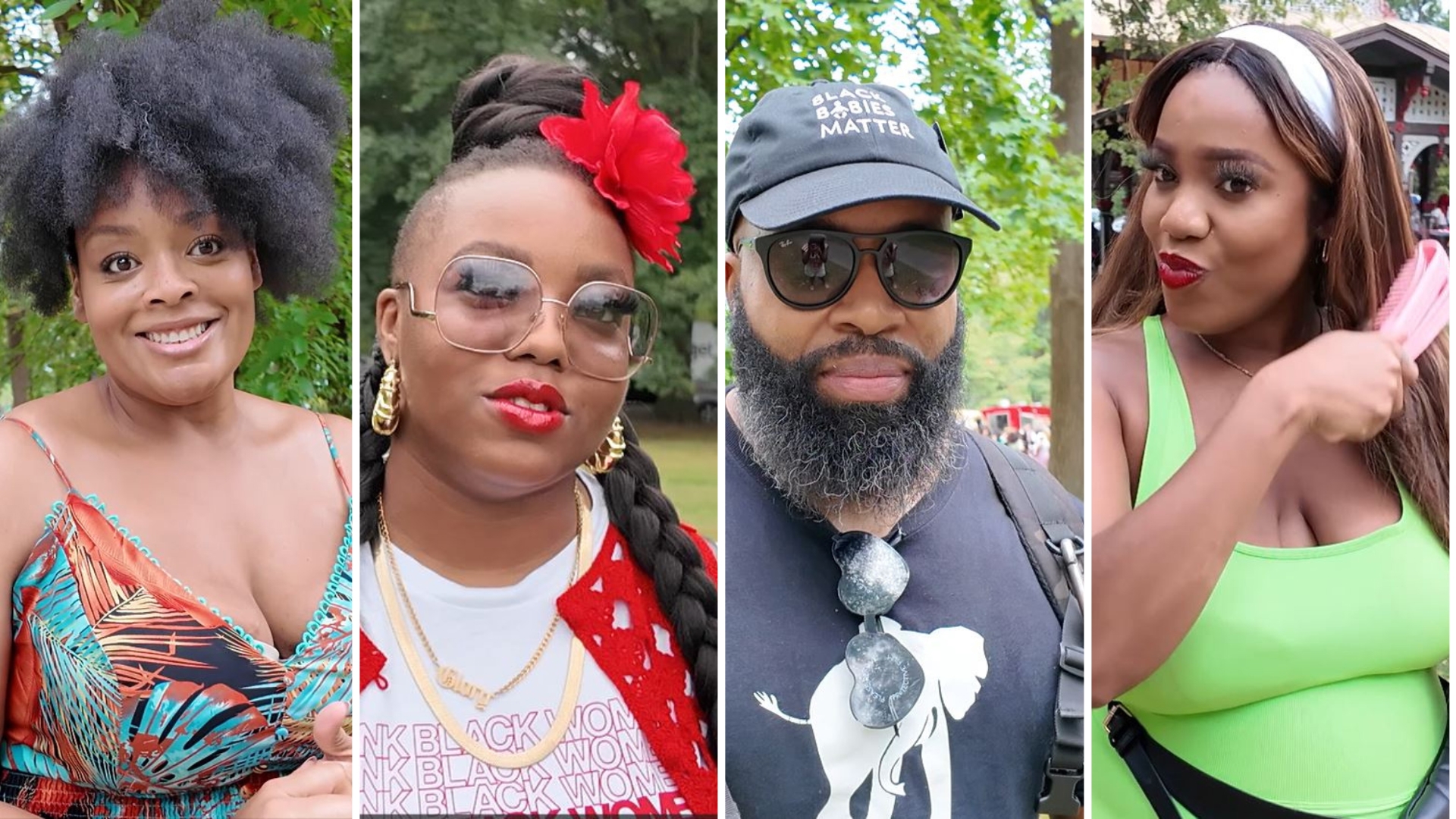ST. LOUIS — Hundreds gathered in Tower Grove Park on Sunday all for the love of hair but not just any hair, tightly coiled hair.
From 12 p.m. to 7 p.m., everywhere you looked there were braids, afros, locs, twists, bantu knots, puffballs, and much more at the seventh annual Frizz Fest, a natural festival. This event focuses on making the African American community feel safe and seen, especially black women.
"From its inception, Frizz Fest has been about more than just beauty; it’s about community, representation, and unconditional self-love," Leslie Hughes the Founder of the festival said.
5 On your side spoke to some attendees about their personal hair journey and the significance of the celebration.
Hair Tales
Maxa Foster
"My hair journey has been very long and I would say healing. I didn't have a good relationship with my hair growing up. I had really thick hair and my mom used to do my hair pretty much every other day," Foster said. " I had a lot of it but there were no natural hair care products to take care of it but as I got older and the natural revolution just kind of started coming in the early 2000s the more I embraced my hair."

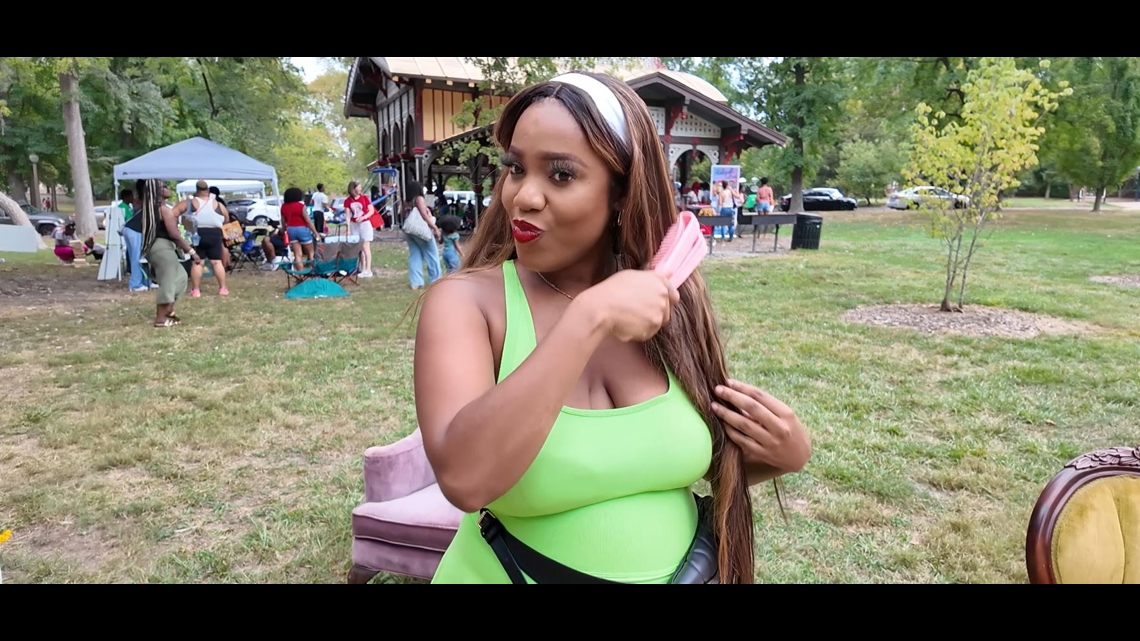
Courtney Moore
"I went natural maybe 12 years ago. I spent most of my life having straight hair and the transition was hard. Both physically, emotionally, socially. Even still being a Black women in like STEM with a lot of natural hair it's not widely accepted in my field so coming somewhere I can let my hair down, coming somewhere I can let my hair be what it is. ... This is how it grows out of my head and you think I am doing something extreme," Moore said.
She jokingly shared that she puts her hair on punishment sometimes.
"How God made you is how he intended and everything about you is perfect just the way it is," Moore said.

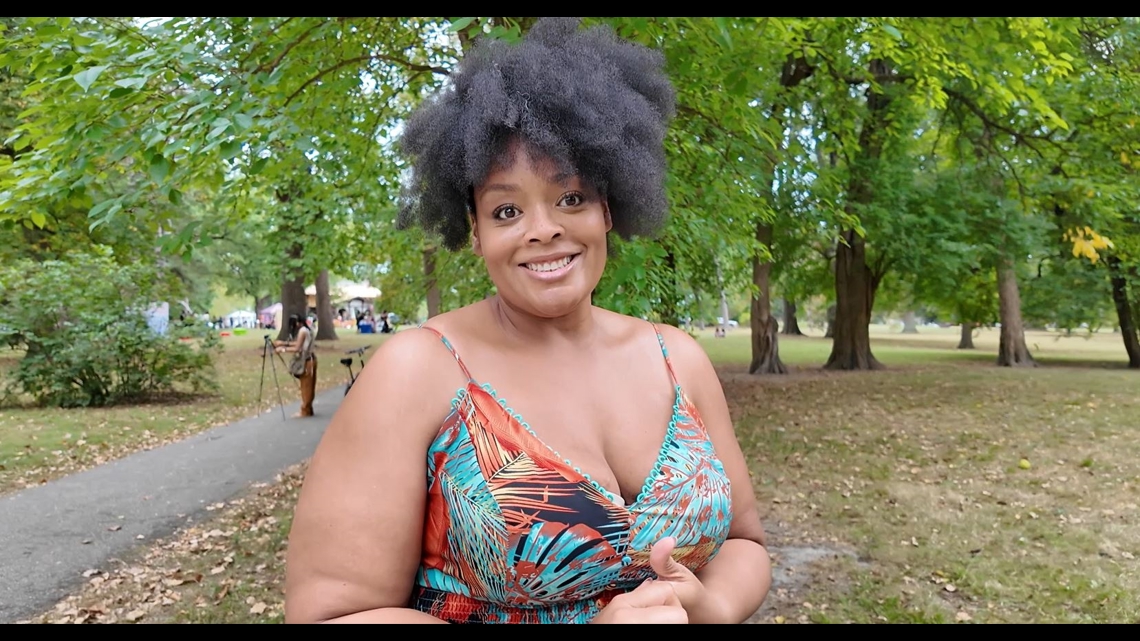
Charity Ridgel
"Started off with locs and ended up cutting them just to stand in solidarity with my mom that's a breast cancer survivor," Ridgel shared." Thank the lord she's in remission. She's doing better. She now has locs, which is amazing. ... Our hair is so crazy like I went through so many different colors."
Ridgel has always loved how many styles she gets to do with her hair.
"Hair for me is kind of like art. ... When you look good and you feel good that hair is like that cherry on top. I love it."

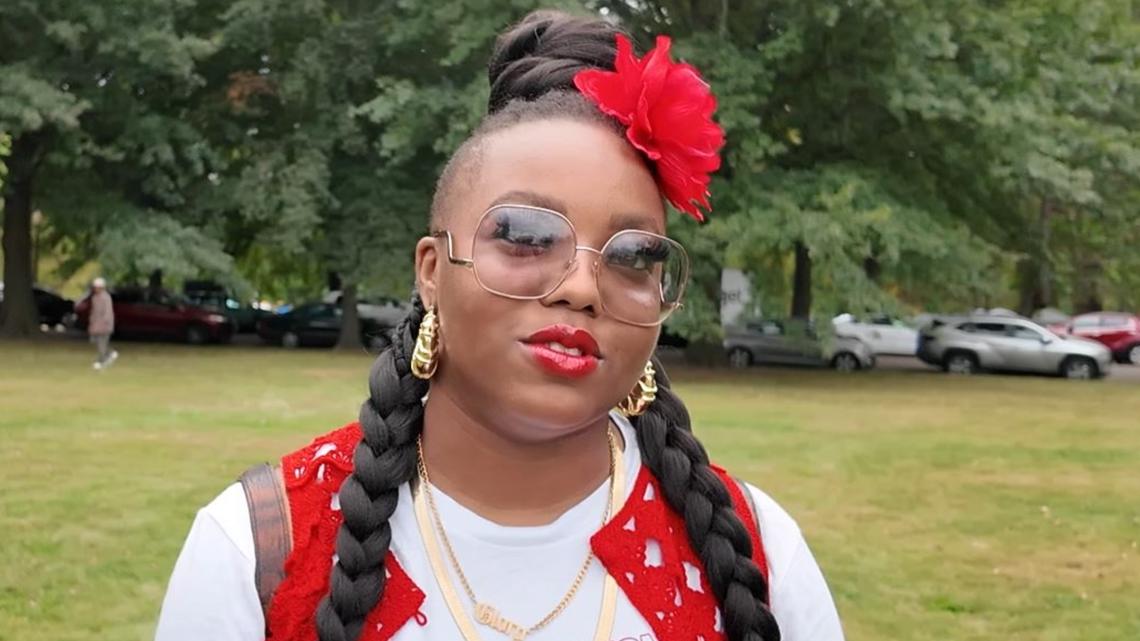
Stephen Williams
"I used to be really dark and lovely on top," Williams shared. "I had to be ok with letting go. ... I would go to the barbershop every two weeks and get a line up in between weeks. It was thinning up top a lot so I decided to go bald and it wasn't a crazy attachment."
Williams believes that letting go of his hair was easier because of his beard.
"It made me feel comfortable at a time when it wasn't really cool to do. So I have been wearing a beard since like 2010," Williams said. "I think it's important to embrace your natural hair. ... whether your hair is naturally straight, whether it's naturally curly."
He said it's an accessory but it doesn't have to define you if you lose it.

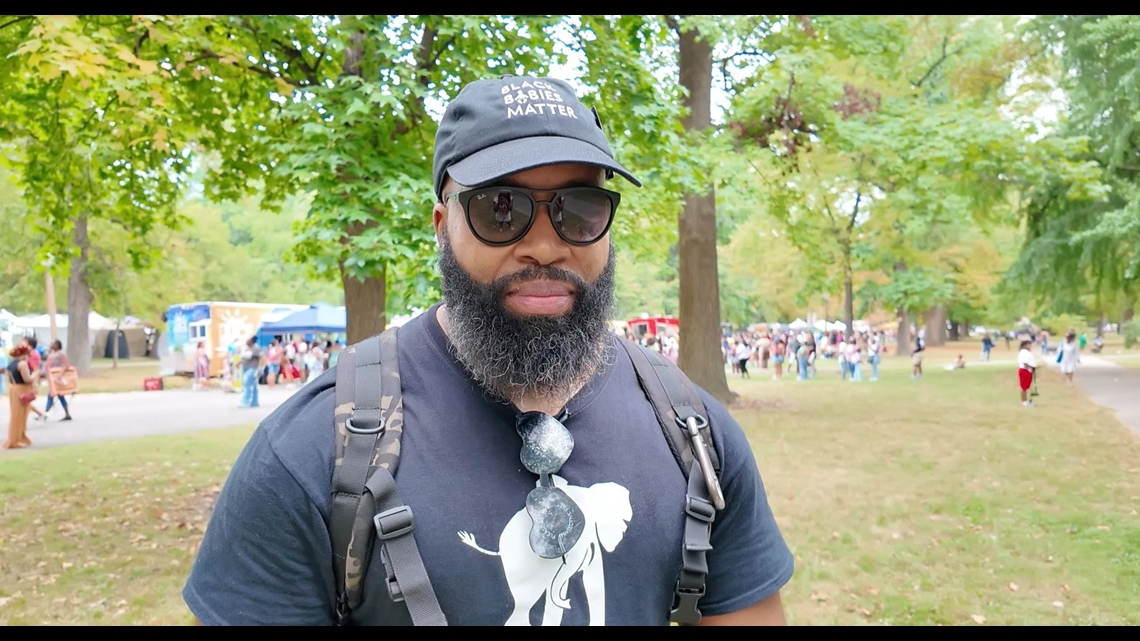
Why is this important?
Dove shared on their website that 81% of Black girls in majority-white schools wish their hair was straight sometimes, 66% of Black girls in majority-white schools experience discrimination, 45% of Black girls in all schools face discrimination, and 47% of Black mothers report discrimination related to their hair.
A bill prohibiting discrimination based on a person's hair texture and hairstyle has been passed in 27 states, which means that 23 states, including Missouri, have not.
“We must be much more interested in what we are putting in a student’s head than what’s going out of it. If we’re distracted by someone’s hair then maybe that’s something we need to take up with a physician, but it’s not the child’s problem,” Democratic State Representative Raychel Proudie, teacher and school counselor said in a letter to the House of Representatives in March.
The Missouri Creating a Respectful and Open World for Natural Hair Act (CROWN Act) is at a standstill. St. Louis and Kansas City are the only cities where the bill is a law in the state, according to the Crown Act website.
The bill has been filed according to the Missouri Senate's website. The bill has also been approved by a committee and returned by the committee to the full House back in Aug. 2023.
Within the same letter to the House of Representatives Republican House Speaker Dean Plocher said “Through the hearing process, young people testified to their experiences about being made to feel uncomfortable about their natural hairstyles at their schools. This legislation is one more way that we can stand up and let all students know they are welcome and valued, and we in the Missouri House want to see them succeed."
So the question is what's the hold up?
It always stalls in the senate, Missouri State Representative of the 79th District LeKeySha Bosley said.

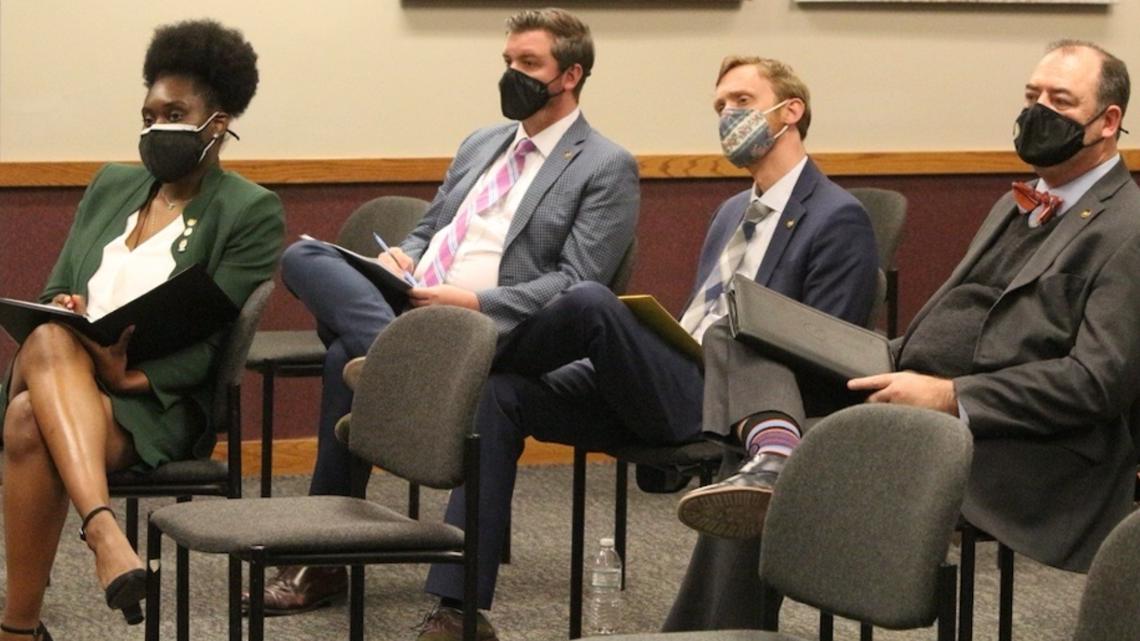
She has consistently advocated for this bill for the past six years.
"So right now what I have been able to work on with other legislators across the state is on the local levels and getting the Crown Act passed as ordinances. So a few years ago, I worked with Alderwoman Shameem Clark Hubbard, as well as Councilwoman Rita Days, to get the Crown Act or a version of the Crown Act passed in Saint Louis County and Saint Louis City. So we are still fighting to get it passed in the legislature for the state to be put in statute so that we can have those protections and our scholars can have those protections in school."

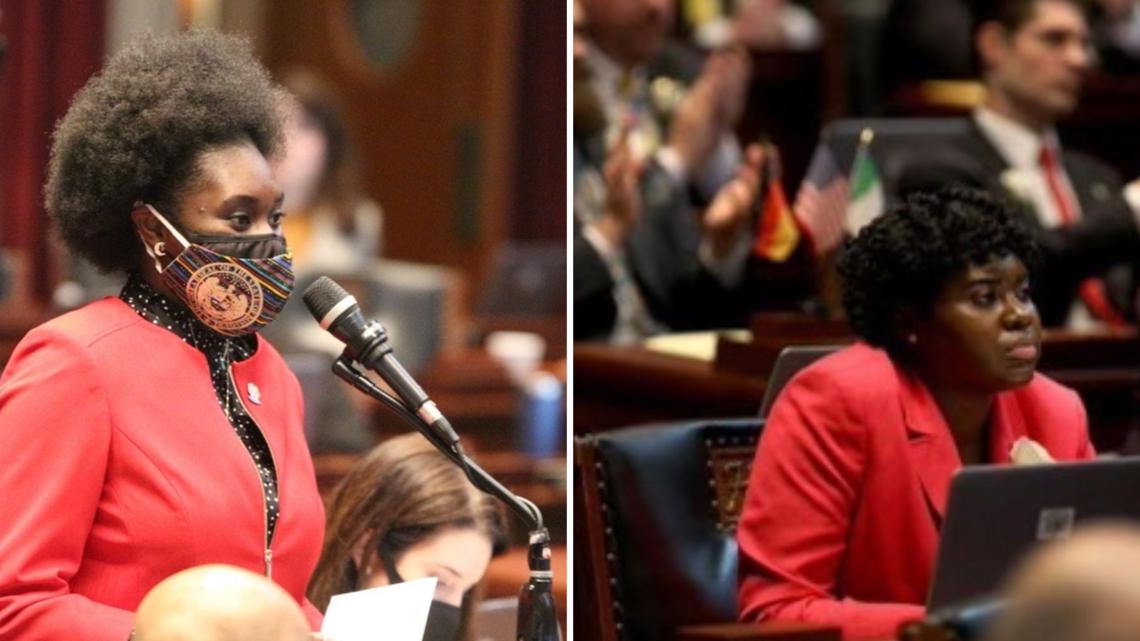
Bosley shared a few hair stories of her own and described one of them as a clarifying moment.
"I was campaigning, actually running at 24 years old to hold the position of state representative. I was told, you know, you need to do something to your hair. Your hair is just wild, unruly. So I conformed a bit and I ended up putting on a wig, worst decision of my life. Mind you, I was outside canvassing for hours upon hours upon hours, for days and days and days in this wig in 100-degree plus weather sometimes," she shared." And one day it was so hot. I snatched this wig off of my head as I was knocking on doors and in that moment, I had the realization that I did not need to conform to be who I was, who people needed me to be in the space of being a representative. Nor did I have to conform to just be a genuine soul who just wants to do good."
Bosley confessed to feeling that a part of her identity felt misplaced and then she found it again.
She said that it was not a political statement or a tool.
41% of Black women change their hair for a job interview, according to a 2023 study done by LinkedIn and Dove.
Since that moment, Bosley has found professional success and personal success. She also has learned that wearing her tightly coiled hair openly has inspired others to do the same.
Bosley remembers a little girl who approached her after a panel discussion in tears.
"I'm going to start wearing my hair. I didn't love my hair until I just saw you speak about how you love your hair," Bosley recalled. "God allowed me to be a vessel for him to show that you love you because I created you in such a beautiful way and you are everything that you needed to be."
Bosley then shared another story from her childhood about untainted love for self.
"It was picture day. My mom had flat ironed my hair or hot combed my hair to make it look all nice, pretty, and straight," Bosley recalled. "I went to school. By the time it was time to take pictures, my hair was so big and it was so puffy. And until this day that is one of my favorite pictures of myself because I didn't know it then that it was just a part of who I was, I've always loved big hair. But in that moment it wasn't like, oh my God, I was crying that my hair was messed up."
The third-grade picture is still Bosley's favorite school picture.

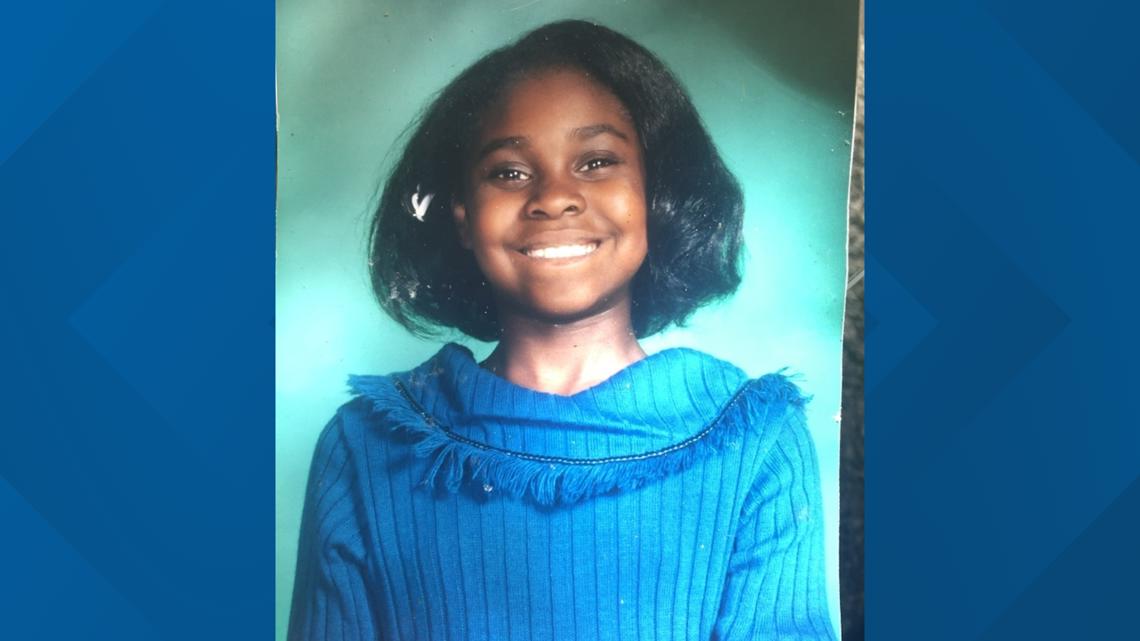
The Frizz Fest and the Crown Act is not about other people's acceptance, its about personal acceptance, Bosley said passionately.

